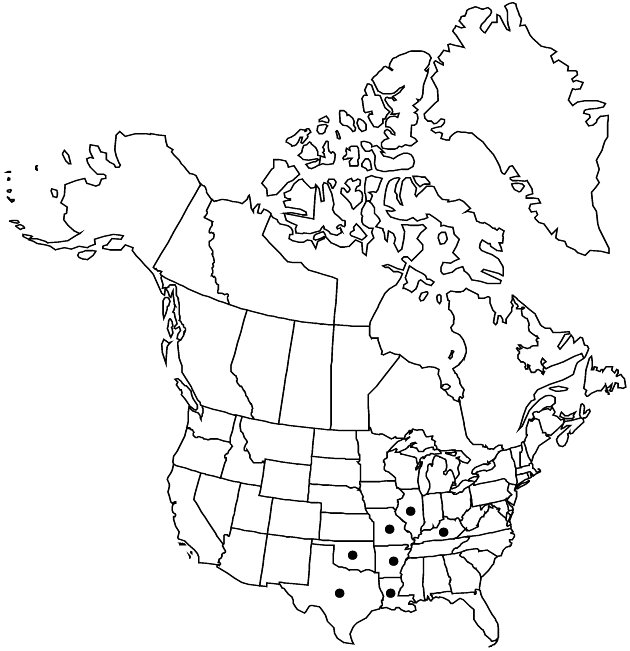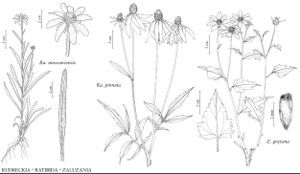Difference between revisions of "Rudbeckia missouriensis"
Biltmore Bot. Stud. 1: 17. 1901.
FNA>Volume Importer |
imported>Volume Importer |
||
| (One intermediate revision by the same user not shown) | |||
| Line 8: | Line 8: | ||
}} | }} | ||
|common_names=Missouri or Missouri orange coneflower | |common_names=Missouri or Missouri orange coneflower | ||
| + | |special_status={{Treatment/ID/Special_status | ||
| + | |code=F | ||
| + | |label=Illustrated | ||
| + | }}{{Treatment/ID/Special_status | ||
| + | |code=E | ||
| + | |label=Endemic | ||
| + | }} | ||
|basionyms= | |basionyms= | ||
|synonyms={{Treatment/ID/Synonym | |synonyms={{Treatment/ID/Synonym | ||
| Line 49: | Line 56: | ||
|publication title=Biltmore Bot. Stud. | |publication title=Biltmore Bot. Stud. | ||
|publication year=1901 | |publication year=1901 | ||
| − | |special status= | + | |special status=Illustrated;Endemic |
| − | |source xml=https:// | + | |source xml=https://bitbucket.org/aafc-mbb/fna-data-curation/src/2e0870ddd59836b60bcf96646a41e87ea5a5943a/coarse_grained_fna_xml/V19-20-21/V21_127.xml |
|tribe=Asteraceae tribe Heliantheae | |tribe=Asteraceae tribe Heliantheae | ||
|subtribe=Asteraceae (tribe Heliantheae) subtribe Rudbeckiinae | |subtribe=Asteraceae (tribe Heliantheae) subtribe Rudbeckiinae | ||
Latest revision as of 21:09, 5 November 2020
Perennials, to 80 cm (not rhizomatous, not stoloniferous, rosettes at bases of aerial stems). Stems (branches ascending) moderately hirsute (hairs spreading, 1+ mm). Leaves: blades linear to spatulate (not lobed), bases attenuate to cuneate, margins entire or remotely serrulate, apices acute to rounded, faces hirsute; basal petiolate, 5–20 × 0.5–2 cm; cauline petiolate (proximal) or sessile (distal), 2–15 × 0.4–1.5 cm. Heads borne singly or (2–12) in loose, corymbiform arrays. Phyllaries to 1.5 cm (faces hairy, more densely abaxially). Receptacles mostly hemispheric; paleae 5–6.5 mm, apices rounded to acute, abaxial tips glabrous. Ray florets 9–15; laminae elliptic to oblanceolate, 10–25 × 5–8 mm, abaxially sparsely strigose. Discs 8–15 × 10–17 mm. Disc florets 150–250+; corollas proximally greenish yellow, distally purple brown, 4–5.5 mm; style branches ca. 1.5 mm, apices obtuse. Cypselae 1.5–2.7 mm; pappi coroniform, ca. 0.1 mm. 2n = 38.
Phenology: Flowering late spring–fall.
Habitat: Dry, rocky prairies, limestone glades
Elevation: 10–80 m
Distribution

Ark., Ill., Ky., La., Mo., Okla., Tex.
Discussion
Selected References
None.
